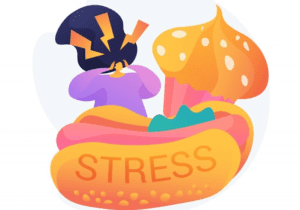Questions a Child Psychologist Might Ask
This article has been researched and written by Nayla Daou. AI has not been used in producing this article.
When preparing for your child’s first appointment with a psychologist, it’s natural to feel curious—or even a little anxious—about what to expect. Understanding the kinds of questions that might come up during this initial session can help ease concerns and ensure you’re ready to provide the insights your provider needs. This article will explore the types of questions a child psychologist might ask and their purpose in building a comprehensive care plan tailored to your family’s needs.
What to Expect in the First Appointment
The first session with a child psychologist serves as a foundation for understanding your child’s challenges, strengths, and experiences. The psychologist’s role is not to assign blame but to partner with your family to support your child’s mental health. It’s important to recognize that this is a judgment-free space where the goal is to create a roadmap that empowers your family to foster a supportive environment for your child.
Types of Questions a Child Psychologist Might Ask
During the initial appointment, child psychologists use various questions to gather comprehensive information about your child and family. These questions are typically categorized into three main areas:
- Individual and Family History
- Current Experiences and Family Dynamics
- Goals and Expectations
The structure of these questions may vary depending on your child’s age, developmental stage, and communication style. For younger children or those with communication challenges, psychologists often direct more questions toward parents or engage the child through play-based interactions to build trust and rapport.

Questions About Individual and Family History
Understanding your child’s and family’s history is essential for identifying factors that may be contributing to your child’s current challenges. During this part of the session, the psychologist may ask about several key areas:
Medical and Mental Health History
The psychologist might inquire about:
- Any medical diagnoses or conditions your child has.
- Experiences with developmental delays or difficulties.
- Previous consultations with mental health professionals or any evaluations your child has undergone.
Family History
Questions may explore whether other family members have faced similar challenges, such as anxiety, depression, or behavioral issues. This information can help identify patterns or genetic factors that might influence your child’s well-being.
Educational and Social Background
The psychologist may ask about:
- Challenges your child has faced at school, such as learning difficulties or social struggles.
- How your child interacts with peers and authority figures, which can provide insights into their social skills and behavioral patterns.
As a caregiver, you are the expert on your child’s life. Sharing detailed information will help the psychologist develop a clearer picture of your family’s situation and tailor a support plan that meets your child’s unique needs.
Questions About Current Experiences and Family Dynamics
To gain a deeper understanding of your child’s daily life and emotional world, the psychologist will ask about their personality, behaviors, and the family environment. This helps in identifying how various factors influence your child’s well-being. Some of the questions you might encounter include:
Medical and Mental Health History
- What medical diagnoses or conditions does your child have?
- Have you noticed any developmental delays or difficulties in your child?
- Has your child previously consulted with mental health professionals or undergone any evaluations?
Family History
- Do any other family members experience similar challenges, such as anxiety, depression, or behavioral issues?
- Are there any genetic factors or family patterns that might influence your child’s well-being?
Questions About Goals and Expectations
Setting clear goals is a crucial part of developing an effective care plan for your child. The psychologist will want to understand what you hope to achieve through therapy to ensure that the support provided aligns with your family’s needs. Setting clear goals is essential for an effective care plan. Questions may include:
- Prioritizing Challenges: What concerns are most urgent? Are there specific behaviors you’d like to see change?
- Family Goals: How do you envision therapy benefiting your child and family? What skills or coping strategies do you want your child to develop?
- Age-Specific Questions: Older children might be asked, “If you could change one thing, what would it be?” For younger kids, playful questions about their “three wishes” can reveal their inner thoughts.
Building a Collaborative Partnership for Your Child’s Well-Being
The first appointment with a child psychologist is more than just an information-gathering session—it’s the start of a collaborative partnership focused on your child’s well-being. Together with the psychologist, you’ll co-create a care plan that addresses your child’s needs while considering the dynamics of your entire family. By approaching this initial meeting with openness and preparation, you set the stage for meaningful progress. Remember, the psychologist is there to listen, guide, and provide tools to help navigate any challenges ahead. If you’re seeking support, Clearminds is here to assist you every step of the way toward a brighter future for your child and family.
5 Simple Mental Health Practices for Your Everyday Life: Nurturing Your Body & Mind
In today’s fast-paced world, it’s becoming increasingly evident that we need to place our mental health at the forefront
Ways to Reduce Anxiety in 2024
As we say farewell to 2022 and usher in the New Year, we look towards the future. With New Year’s resolutions on the docket, many of us are striving to achieve a calm life …
Navigating Compassion Fatigue in the Digital Age: A Call to Prioritize Mental Well-Being
Amid the constant stream of information and images that flood our screens, the toll on our mental well-being can be …
The Link Between Anxiety and Overeating
All of us have encountered moments of stress and unease throughout our lives. These feelings of anxiety not only bring…
10 Steps To Fix A Toxic Relationship
Every relationship has its fair share of ups and downs, but when toxicity creeps in, it can become a serious challenge. Toxic relationships can be emotionally draining and detrimental to our overall …
Exploring the Benefits of EMDR Therapy for Anxiety and Depression
Anxiety and depression are two of the most common mental health disorders worldwide, affecting millions of people every year. While traditional talk therapy and medication can be …
Health Effects of Untreated Depression
It’s very common to feel sadness at one point or another in our life. Depending on your specific circumstances, you may even feel …
Psychologists vs. Psychiatrists – What’s the Difference?
Clients shouldn’t have to jump through hoops to understand who the perfect candidate is for treating their emotional and/or behavioral struggles. Yet, understanding the type of provider you should see during …
Gentle Parenting: What is it and How to Try it Yourself
When it comes to raising children, no one has all the answers. Every parent and child have unique challenges and needs. Navigating these individual circumstances along with ever-changing environments, such as school …
How to Improve Your Relationship with Your Children – A Psychologist’s Guide
The modern family’s lifestyle leaves us shuffling from school to sports practice, family events, visiting friends, and everything in between. As society evolves to become more on-the-go and technologically advanced, w…











